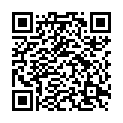|
|
|
| Module code: PIBWN70 |
|
|
1V+3PA (4 hours per week) |
|
5 |
| Semester: 6 |
| Mandatory course: no |
Language of instruction:
German |
Assessment:
Project work
[updated 19.02.2018]
|
KI696 Computer Science and Communication Systems, Bachelor, ASPO 01.10.2014
, semester 6, optional course, non-technical
KIB-SGSC (P221-0131) Computer Science and Communication Systems, Bachelor, ASPO 01.10.2021
, semester 6, optional course, non-technical
KIB-SGSC (P221-0131) Computer Science and Communication Systems, Bachelor, ASPO 01.10.2022
, semester 6, optional course, non-technical
PIBWN70 (P221-0131) Applied Informatics, Bachelor, ASPO 01.10.2011
, semester 6, optional course, not informatics specific
PIB-SGSC (P221-0131) Applied Informatics, Bachelor, ASPO 01.10.2022
, semester 4, optional course, not informatics specific
PIB-SGSC (P221-0131) Applied Informatics, Bachelor, SO 01.10.2026
, semester 4, optional course, not informatics specific
|
60 class hours (= 45 clock hours) over a 15-week period.
The total student study time is 150 hours (equivalent to 5 ECTS credits).
There are therefore 105 hours available for class preparation and follow-up work and exam preparation.
|
Recommended prerequisites (modules):
None.
|
Recommended as prerequisite for:
|
Module coordinator:
Prof. Dr. Martina Lehser |
Lecturer: Prof. Dr. Martina Lehser
[updated 09.02.2016]
|
Learning outcomes:
After successfully completing this module, students will be able to develop a communicative system with sensors and microcontrollers in an international and globally distributed project team. They will learn to assume professional and organizational responsibility und understand and experience the importance of intercultural competence with a focus on China.
In addition, through their work in a project team with different linguistic, social and geographical environments, students will:
- understand the importance of communication in and with the other language environment
- work with team members from different learning backgrounds and nations
- recognize and use different competences
- establish contacts with foreign partners promoting internationalization
- learn to accept and adapt to other work methods
[updated 19.02.2018]
|
Module content:
Students from various fields and levels of study and with different degrees from the htw saar and CDHAW (Tongji Univ., Shanghai) will form a globally distributed team. The team will consist of 5 to 15 students. Over the period of a full semester, the team will work on a specific task within the project.
At the team´s locations, different aspects will be dealt with. At the htw saar the topics will be mechatronics and software and at the CDHAW the topics will be hardware and production.
The project results will be presented to the lecturers in the form of a presentation and a final report.
Project management:
- Specifications
- Project planning
- Version management
Software development:
- Embedded devices
- TCP/IP communication
- Data logging
Electrical Engineering/Mechatronics:
- Electronic circuits
- Test design environment
- CAD design - casing parts
Intercultural competence:
- Focus: China
- Patterns of communication
- Work methods
- The concept of time
[updated 24.02.2018]
|
Teaching methods/Media:
Lecture, workshop, training
Meeting (face to face & Skype)
[updated 19.02.2018]
|
Recommended or required reading:
- China-Strategie des BMBF 2015_2020: Strategischer Rahmen für die Zusammenarbeit mit China in Forschung, Wissenschaft und Bildung
- Umsetzungsempfehlungen für das Zukunftsprojekt Industrie 4.0: Abschlussbericht des Arbeitskreises Industrie 4.0
- Konflikte und Synergien in multikulturellen Teams, Petra Köppel
- Management von IT-Projekten, Dr. Hans W. Wieczorrek, Dipl.-Math. Peter Mertens
- Führung im Projekt, Dr. Thomas Bohinc
- Embedded Technologies, Joachim Wietzke
- Embedded Linux, Joachim Schröder · Tilo Gockel · Rüdiger Dillmann
[updated 19.02.2018]
|
Module offered in:
SS 2018,
SS 2017,
SS 2016
|


